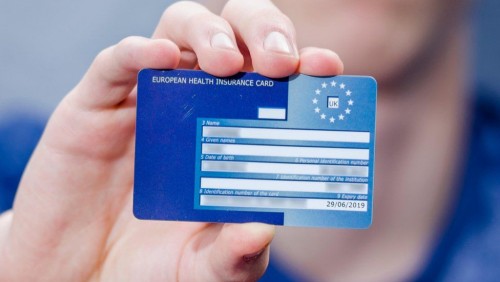
Studying abroad is a life-changing experience, and Europe has become one of the most sought-after destinations for international students. However, one critical aspect of preparing for your studying in Europe is understanding the healthcare system and ensuring you have the necessary health insurance coverage. In this guide, we will provide you with essential information on European health insurance for international students.
Understanding European Healthcare Systems
To navigate healthcare as an international student in Europe, it's crucial to grasp the basics of how European healthcare systems operate. While there are variations across countries, most European nations offer universal healthcare to their citizens and residents. This means that eligible individuals have access to essential medical services without financial barriers. Funding for European healthcare systems primarily comes from taxes, social security contributions, and government allocations. Although these systems deliver high-quality care, they may not cover all medical expenses, and you might encounter waiting times for non-urgent treatments.
Health Insurance for International Students
As an international student in Europe, you may not automatically qualify for free healthcare like European citizens. Therefore, it's vital to secure the right health insurance to cover your medical expenses. Two primary options are available:
1. European Health Insurance Card (EHIC) or its Successor
The European Health Insurance Card (EHIC) was a popular choice for international students in the past. It allowed European Union (EU) and European Economic Area (EEA) citizens to access essential healthcare services when studying in other EU or EEA countries. However, the EHIC has been largely replaced by the European Health Insurance Card Successor (EHICS) as of 2022. EHICS extends coverage to non-EU/EEA citizens, including international students.
Here are some key points about EHICS:
· EHICS provides access to necessary medical services in your host country, although it might not cover all expenses. It's essential to understand the specific benefits and limitations in your destination.
· Typically, EHICS covers emergency treatments, doctor's appointments, hospital stays, and prescriptions.
· To obtain EHICS, you need to apply through the relevant authorities in your home country, ideally well in advance of your departure.
· EHICS is often free of charge, but some countries may require a small administrative fee.
· EHICS remains valid for the duration of your studies but may need periodic renewal.
2. Private Health Insurance
In certain cases, private health insurance might be a more suitable choice for international students, particularly if you are ineligible for EHICS or seek more comprehensive coverage. Student-specific private health insurance plans often offer a range of benefits, including:
· Coverage for both medical emergencies and non-emergencies.
· Access to a network of healthcare providers, including doctors and hospitals.
· Repatriation coverage, which allows you to return to your home country for treatment if necessary.
· Coverage for pre-existing conditions (subject to policy terms).
Before purchasing private health insurance, research and compare different plans to find the one that aligns with your needs and budget. Some universities may also require you to have private health insurance as part of the enrollment process.
Tips for Navigating European Healthcare as an International Student
Know Your Insurance Coverage: Regardless of whether you opt for EHICS or private health insurance, take time to understand what is covered and what is not. This will help you avoid unexpected medical expenses.
Register with a Local General Practitioner (GP): Consider registering with a local GP, even if you're in good health. Having a primary care physician can be invaluable for medical advice or referrals to specialists.
Carry Important Documents: Always keep your EHICS or private health insurance documents, along with your passport and student ID, readily accessible. You may need to present them when seeking medical care.
Emergency Numbers: Familiarize yourself with local emergency numbers in your host country. Across most European countries, the emergency number for medical assistance is 112. This number is universally applicable in the European Union and offers free access to fire, police, and ambulance services. Some countries may have distinct emergency numbers aside from 112. Include these numbers in your preparations for studying in Europe.
Consider Travel Insurance: If you plan to travel outside your host country, consider obtaining travel insurance to cover potential medical emergencies or unforeseen events during your trips.
Studying in Europe is an incredible opportunity, and ensuring you have the right health insurance coverage is a fundamental part of your preparations. Whether you rely on EHICS or opt for private health insurance, having peace of mind regarding your healthcare needs allows you to concentrate on your studies and enjoy your international experience fully. Remember to research the healthcare system and insurance options specific to your host country, as regulations and requirements can differ. With the appropriate insurance in place, you can embark on your educational journey in Europe with confidence.